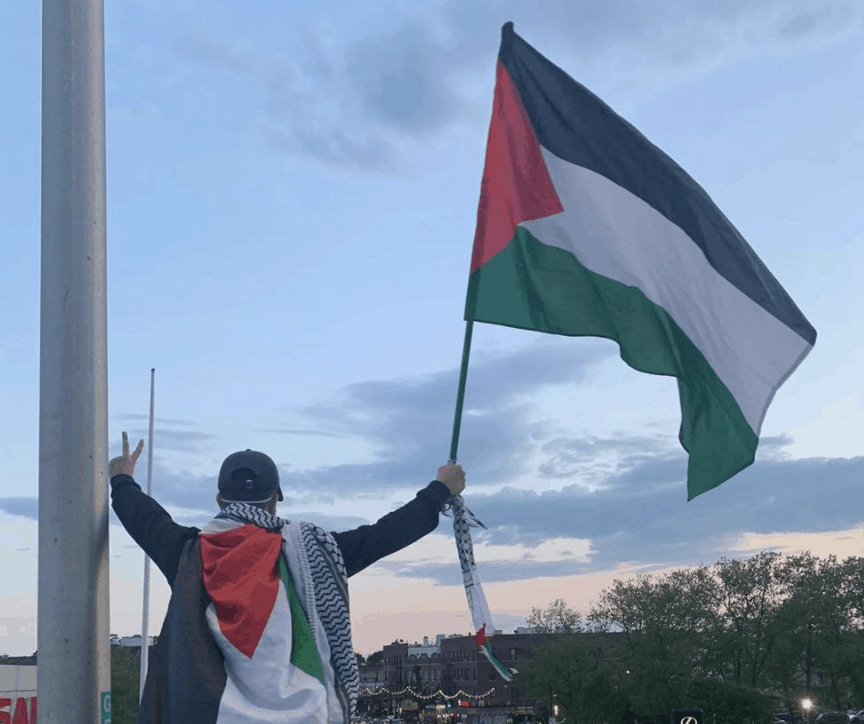Over the past few weeks, the resurgence of violence in both Palestine and Israel has drastically increased. Since Israel’s inception, the outbreak of civil unrest among Palestinians and Israelis has far from decreased. Over 70 years of turbulence has deprived Palestinians of their homeland and expanded Israel’s occupation. As we witness the current situation, many are still unaware of the history behind it. If you need help putting everything into context, keep reading:

The History
The military occupation of Palestine by Israel began in 1947, more commonly referred to as “Al Nakba” in Arabic which translates to “the catastrophe”. The Nakba refers to a period of time (1947-1949) during which massive ethnic cleansing of Palestinians took place through Israeli forces, thus establishing the State of Israel. The Nakba emerged from the ‘Zionism Movement’ which produced the idea or belief that Jews as a race deserve their own nation. Initially, there was talk of placing the Jewish people in Uganda or Argentina, however Palestine eventually became the chosen state due to its biblical relations as their ‘Promised Land’. After World War II, the British “issued the Balfour Declaration, promising to help the “establishment in Palestine of a national home for the Jewish people”, essentially vowing to give away a country that was not theirs to give”. The UN eventually allocated a share of Palestine to the displaced Jewish population, which included the forced expulsion of thousands of Palestinians from their homeland to establish a Jewish-majority state, as per the aspirations of the Zionist movement. The UN partition plan allocated approximately 55 percent of land to the Jews, whose population at the time did not make up more than one third of the total population. Moreover, the land allocated to the Jews was agriculturally abundantly richer, which meant better resources. Between the years 1947 and 1949, more than 750,000 Palestinians, out of a population of 1.9 million, were expelled from their homes and denied the right to return. They further endured the destruction of approximately 530 villages through this massacre. This form of displacement was outlined in the “Plan Dalet” as official government policy, which explicitly allowed for the destruction and removal of Palestinian communities by the Zionist Movement. Since then, systemic depopulation of Palestinian communities has continued.
What’s Happening Now
Unfortunately, the Nakba never ended. Today there are approximately 7 million Palestinian refugees displaced across the globe. The dispossession, massacre and ethnic cleansing of Palestinians is still taking place. Jewish settlers continue to confiscate land while Israeli militia continue to demolish Palestinian land, instil fear, and destroy Palestinian livelihood. Since the initial Nakba, Palestinians have continuously been denied rights equal to their Israeli counterparts, and face constant systemic discrimination. The most recent Israeli colonisation is taking place in Sheikh Jarrah with significantly increased levels of violence. As of now, more than 200 families are being forcefully evicted from their homes, violating basic international rights laws by attacking and expelling civilians. Additionally, the rise of violence at Al-Aqsa Mosque during the holy month of Ramadan just adds to the list of injustice against Palestinians, which resulted in the terrorising of thousands of worshippers, and the hospitalisation of hundreds of them. What is happening in Palestine is settler colonialism, military occupation and ethnic cleansing, and over the decades, Israel has continued to occupy more and more Palestinian territories and displace the families that lived there
The Cease Fire
As of Thursday May 21st, a ceasefire between Israel and Palestine was announced, after major international pressures. However, a ceasefire does not end the list of injustices felt by Palestinians as restrictions, blockades and systemic discrimination still exists. Less than 12 hours after the ceasefire, Israeli soldiers stormed into Al-Aqsa mosque and attacked the worshippers – this is what life in occupied Palestine is like, and this is why Palestine deserves more than just a ‘ceasefire’. A ceasefire is just the beginning of a long list of actions Israel must take.
It is important to remember that being pro-Palestine does not equal to anti-Semitism – this is not a fight between two religions, but a fight against the oppressive Israeli regime and the perpetual injustice Palestinians face as a result of it. Palestine is comprised of Palestinian Jews and Christians, alongside a Muslim majority, just like Israel has a Jewish majority but also a significant presence of Muslims and Christians. Therefore sharing your opinions and beliefs should be done in the absence of anti-Semitic or Islamophobic language. Similarly, Zionism does not equal Judaism. Zionism does not encompass all Jews, rather Jewish Zionists exist under this broader term. These Zionists are separate from other Jews as in they believe in and stand in support of the ideology to strive for an independent Jewish state, in this case Israel. Whether you stand in solidarity with Palestine or Israel, antisemitism and islamophobia have no place in your activism.








What do you think?
You must be logged in to post a comment.